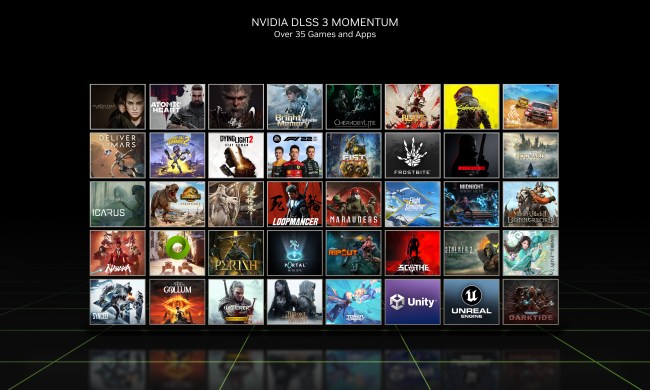
At Nvidia’s annual graphics technology conference, CEO Jensen Huang took to the stage to unveil the new Jetson Nano. Referred to as an “A.I. computer,” the Nano joins Nvidia’s family of other Jetson computers such as the AGX Xavier or Jetson TX2. These aren’t computers for gaming or productivity — they’re designed to accelerate A.I. processes and to power robotics.
The Jetson Nano can supposedly deliver 472 gigaflops of computing performance all while drawing as little as 5 watts of power. It’s powered by a powerful 128-core GPU and a quad-core A57 CPU from Arm. The GPU is based on the older Maxwell architecture, which was the predecessor to the more current Pascal and Turing.
The minicomputer can also support high-resolution sensors and, according to Nvidia, can “process many sensors in parallel” and run “multiple modern neural networks on each sensor stream.” Because it supports a lot of the most popular A.I. frameworks, it should be easier for developers to jump in and quickly integrate the ones they use on the Jetson Nano.

The product was announced hand-in-hand with CUDA-X A.I. libraries, an end-to-end platform designed for the data sciences. All sorts of industries and sciences increasingly need access to data analytics, machine learning, and deep learning, but aren’t exactly equipped to handle them. Nvidia claims using CUDA-X A.I. libraries on a computer like the Jetson Nano could speed up A.I. workloads by up to 50 times.
Key Specs
- GPU: 128-core Nvidia Maxwell architecture-based GPU
- CPU: Quad-core Arm A57
- Video: 4K at 30 FPS (H.264/H.265) / 4K at 60 FPS (H.264/H.265) encode and decode
- Camera: MIPI CSI-2 DPHY lanes, 12x (Module) and 1x (Developer Kit)
- Memory: 4GB 64-bit LPDDR4; 25.6 gigabytes/second
- Connectivity: Gigabit Ethernet
- OS Support: Linux for Tegra
- Module Size: 70mm x 45mm
- Developer Kit Size: 100mm x 80mm
“Jetson Nano makes A.I. more accessible to everyone — and is supported by the same underlying architecture and software that powers our nation’s supercomputers,” Deepu Talla, vice president and general manager of Autonomous Machines at Nvidia, said in a statement. “Bringing A.I. to the maker movement opens up a whole new world of innovation, inspiring people to create the next big thing.”
The Jetson Nano comes in two models. The more affordable $99 option is known as the “Jetson Nano Developer Kit.” Meanwhile, the full production module will start at $129.



